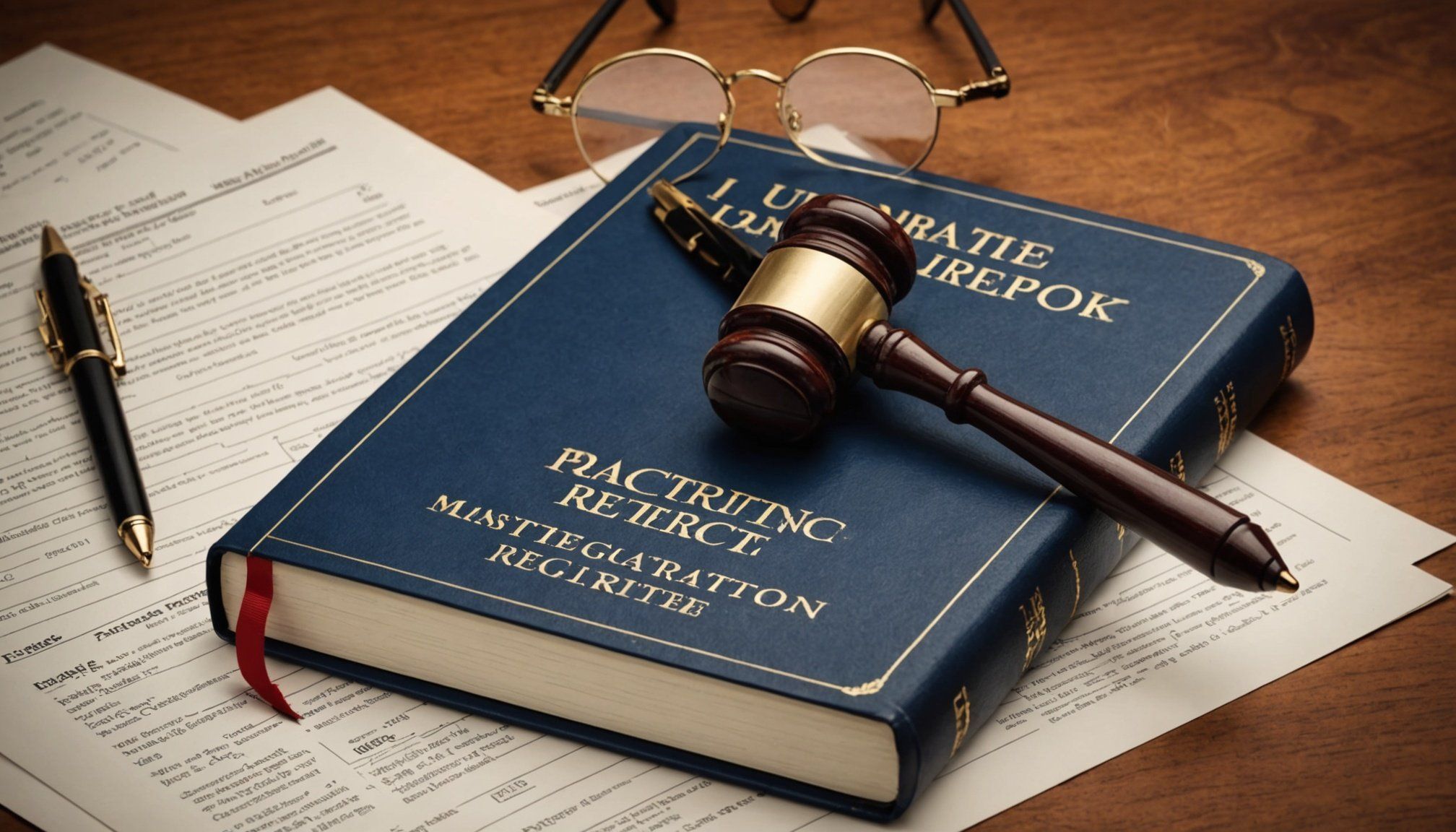Understanding Global Patent Registration
In today’s interconnected marketplace, global patent registration is crucial for UK enterprises seeking to protect their innovations across borders. By understanding the nuances of both domestic and international patent law, businesses can navigate these waters with confidence.
A key distinction between domestic and international patent law lies in jurisdictional reach. While a UK patent protects an invention locally, international filings extend this protection worldwide, addressing unique legal requirements of each territory. For UK enterprises, comprehending these differences is vital. Securing patents in varied jurisdictions can shield products from unauthorized use and provide a competitive edge.
In parallel : Understanding the 2015 modern slavery act: key legal responsibilities for uk enterprises
There are numerous benefits to registering patents internationally. First, it prevents legal battles over intellectual property rights in foreign markets. Securing protection prevents competitors from replicating or profiting from your innovation. Second, it enhances the company’s credibility on a global scale, demonstrating innovation and legal foresight.
For UK enterprises embarking on this path, understanding international patent law’s complexities is essential to success. A thorough grasp ensures not only the safeguarding of innovations but also the strategic growth in global markets. By securing technology and process patents worldwide, businesses can fortify their positions and thrive amidst global competition. Aligning with international regulations means businesses are better placed to capture opportunities across borders.
Also to see : Key legal tips for uk companies to set up a successful pension scheme
Frameworks and Treaties Governing Patent Law
Navigating the realm of patent law frameworks is key for enterprises aiming to secure global protection. Various international treaties play a pivotal role in shaping the landscape of intellectual property. Understanding these treaties and legal compliance helps businesses adhere to international standards and successfully protect their innovations.
Overview of Major International Treaties
Significant agreements such as the Paris Convention and the Patent Cooperation Treaty (PCT) establish core guidelines for patent protection across multiple jurisdictions. These treaties streamline the application process by recognising priority claims, making international filings more efficient.
Role of World Intellectual Property Organization (WIPO)
The World Intellectual Property Organization (WIPO) administers the PCT and facilitates cooperation among countries. It plays a crucial role in fostering a unified approach to patent registration, ensuring seamless navigation through complex legal landscapes.
Understanding the Patent Cooperation Treaty (PCT)
The PCT provides a consolidated application process for UK enterprises to protect inventions in several territories concurrently. While not granting patents per se, it simplifies initial steps, enabling enterprises to assess potential markets to extend patent protection further. This mitigates risks while conserving resources, promoting strategic growth.
Step-by-Step Guide to Patent Registration
Embarking on the patent registration process requires meticulous planning and execution, especially for UK enterprises targeting global markets. Initially, it’s crucial to grasp the specific legal requirements of each jurisdiction where patent protection is sought. For UK businesses, this often involves understanding both domestic guidelines and the nuances of international treaties.
The first step is conducting a thorough patent search to ensure the innovation is unique and non-obvious, meeting eligibility criteria. Once verified, gathering the required documentation forms the backbone of filing strategies. Essential documents typically include detailed patent specifications, claims, and often a summary of the invention. Attention to these legal requirements can prevent delays and ensure a smooth application journey.
Efficiency in documentation and filing is paramount. UK enterprises should consider leveraging tools and services that streamline administrative tasks, such as digital filing platforms. This not only expedites the process but also enhances precision, minimizing the risk of rejections. Employing such strategies, businesses can navigate complex legal landscapes more effectively, unlocking the potential for swift patent approval.
Partnering with experienced legal advisors can also aid in addressing jurisdiction-specific challenges, ensuring compliance and maximizing protection across different territories.
Common Challenges in Global Patent Registration
In the intricate world of global patent registration, UK enterprises often face significant challenges that hinder smooth processing. Deciphering these obstacles is vital to devising effective strategic solutions.
Identifying Common Obstacles
One prevalent challenge involves legal pitfalls. Varied jurisdictional laws can complicate compliance, misaligning registration protocols. Understanding each territory’s specific regulations is crucial to avoid these hidden pitfalls. Additionally, documentation discrepancies might lead to potential rejections, necessitating diligent review and adherence to local standards.
Dealing with Examination Delays
Examination delays are another impediment. Factors such as backlog and stringent scrutiny protocols can extend timelines, affecting the protection of intellectual property. UK enterprises should anticipate such delays and plan accordingly, ensuring comprehensive preparation of documents to withstand intense evaluation processes.
Strategies for Overcoming Jurisdictional Barriers
Strategies to address jurisdictional barriers are essential. Engaging local expertise can bridge cultural and legal gaps, facilitating smoother navigation. This approach not only aids in adhering to relevant laws but also enhances negotiation capabilities for potential disputes or appeals. Utilizing these solutions can mitigate hindrances, ensuring more effective patent registration continuity across diverse landscapes.
Case Studies: Success Stories in Patent Registration
Exploring patent registration case studies illuminates how UK enterprises successfully tackle global intellectual property challenges. The journey of these businesses unfolds lessons and success strategies pivotal for innovating across borders.
Learning from Practical Examples
For instance, Company X faced intense competition in the electronics sector. By embracing comprehensive success strategies, they secured pivotal patents in major markets, enabling them to both deter competitors and solidify market dominance. Their strategy relied heavily on meticulous research and collaboration with legal experts, highlighting the importance of informed decision-making in global patent registration.
Moreover, Company Y in the pharmaceutical industry provides another compelling example. Their proactive approach, which included amiable cooperation with international patent offices and understanding local international patent law, resulted in expedited approvals of critical patents. Such practical examples emphasise that a well-orchestrated patent strategy can significantly influence both market positioning and innovation protection.
These case studies not only illustrate effective steps to patent success but also underscore the necessity for UK enterprises to adapt their strategies according to nuanced legal landscapes and distinct industry demands. Learning from these real-world scenarios can inspire other businesses aiming for international patent accomplishments.
Best Practices for UK Enterprises in Global Patent Registration
For UK enterprises pursuing global patent registration, adopting best practices is pivotal for ensuring successful and long-term protection of innovations.
Developing a Comprehensive Patent Strategy
Strategic planning is the cornerstone of effective patent registration. A well-formulated strategy acts as a roadmap, guiding UK enterprises in navigating international patent law. It’s crucial to assess potential markets and prioritise jurisdictions where protection aligns with business goals.
Engaging with Legal Experts and Advisors
Engaging experienced legal advisors can significantly enhance the patent registration process. These professionals offer invaluable insights into international treaties and compliance, ensuring that businesses avoid costly pitfalls. Their expertise helps in adapting to jurisdiction-specific challenges and fine-tuning filing strategies.
Continual Monitoring of Patent Regulations
The landscape of patent law frameworks evolves continuously. Regular updates of legal requirements are essential to maintain compliance and protect intellectual property. UK enterprises should engage in continual monitoring to swiftly adapt to any changes, thereby safeguarding their innovations effectively.
Implementing these best practices not only enhances the chances of patent approval but also fortifies the legal stance of enterprises. By aligning strategies with global standards and leveraging expert guidance, businesses can navigate the complexities of global patent registration with confidence.











